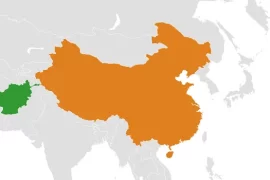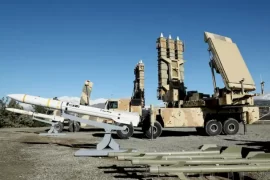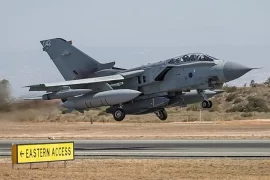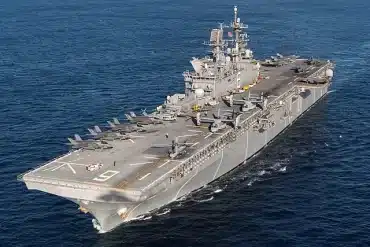Russian Foreign Minister Sergei Lavrov paid a brief visit to Dhaka on September 7th and 8th. Remarkably, this marked the first ever visit by a Russian foreign minister to Bangladesh since its inception as a nation. During his brief sojourn, Lavrov engaged in discussions with both the Bangladeshi Prime Minister and Foreign Minister.
This visit takes on added significance considering the intense competition among major global powers seeking to expand their influence in Bangladesh, particularly in the months leading up to the country’s national election. Throughout the visit, numerous critical issues came up. In this analysis, we will delve more deeply into these matters and explore their ramifications on both a domestic and international scale.
It is worth mentioning that the Russian Foreign Minister had initially planned to visit Bangladesh on November 23, 2022, to participate in a ministerial-level meeting of the Indian Ocean Rim Association. However, the meeting was abruptly canceled, and the Bangladesh Foreign Ministry did not provide any explanation for the cancellation.
Energy cooperation
A significant focal point of the bilateral meeting between Bangladesh and Russia centered on energy cooperation. However, there exist substantial impediments to meaningful collaboration in this area.
To begin, the flagship endeavor in this realm is the Rooppur Nuclear Power Plant.
Despite assurances from the Russian Foreign Minister regarding the timely project completion, widespread skepticism persists due to the extensive sanctions imposed on Russia. These sanctions, a consequence of the Ukraine War, have created challenges in securing the necessary supplies for the plant. In December 2022, for example, a Russian vessel carrying materials intended for the Rooppur Nuclear Power Plant was denied entry into Bangladesh’s Mongla port. The Bangladeshi government, despite Russian pressure, maintained its decision to block the ship’s entry, citing concerns about potential U.S. sanctions and significant financial penalties.
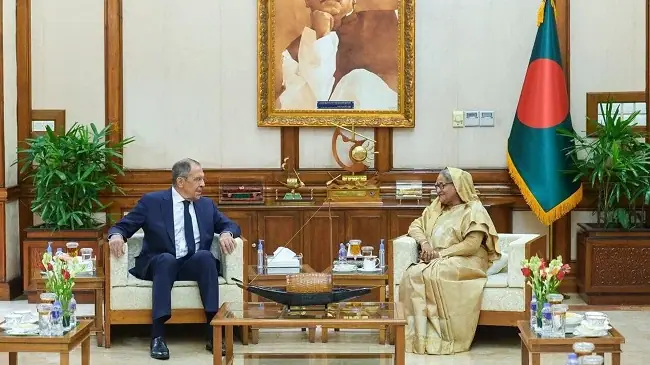
Furthermore, uncertainty surrounds the payment obligations for the project. The Russian Foreign Minister has mentioned their efforts to establish payment systems based on national currencies. Given the relatively small volume of trade between Bangladesha and Russia, using national currencies for such a substantial project appears impractical. Additionally, utilizing the Chinese Yuan as a payment option is not easy due to sanctions against Russian entities involved in the process.
Gas exploration and LNG export
Foreign Minister Lavrov has disclosed that the Russian state-owned energy corporation, Gazprom, is doing some promising projects within Bangladesh’s gas fields. Gazprom has already drilled twenty wells in Bangladesh and intends to continue doing so. However, criticism has emerged regarding the delegation of exploration work to Gazprom without tender, bypassing the state agency BAPEX. Concerns stem from Gazprom’s notably higher drilling costs compared to BAPEX, as well as its reliance on third parties, which has raised questions about transparency and cost-efficiency. Gazprom’s technical performance has also come under scrutiny, with some wells failing to produce gas, necessitating additional drilling by BAPEX at significant expense.
Lavrov has also extended an offer of liquefied natural gas (LNG) exports to Bangladesh to meet its energy demands. A similar proposal was discussed during the fourth session of the Russia-Bangladesh Intergovernmental Commission on Trade, Economic, Scientific, and Technical Cooperation in March 2023. Nevertheless, progress in this regard is limited, and further developments remain pending.
It’s worth noting that Bangladesh previously declined a crude oil supply proposal from Moscow due to a lack of adequate refining infrastructure and concerns about potential Western pressure. The question of whether Bangladesh can procure oil and gas from Russia in defiance of Western sanctions remains a matter of considerable uncertainty.
Trade cooperation
Bangladesh and Russia have expressed a strong desire to enhance their bilateral trade and investment ties during this significant visit. However, despite the substantial potential for increased trade between the two nations, the current status falls significantly short of that potential. While Bangladesh currently ranks as Russia’s second-largest South Asian trading partner, their bilateral trade volume hovers around a mere 3 billion dollars. It’s important to recognize that such growth in trade and investment cannot occur overnight, and the realization of a robust bilateral trade and investment relationship between Russia and Bangladesh remains a distant prospect.
For instance, Bangladesh is keen to boost the export of ready-made garment products to Russia. However, in the fiscal year ’23, Bangladeshi exports to the Russian market saw a significant decline of 27.87 percent compared to the previous year, primarily attributed to the ongoing Russia-Ukraine conflict.
The Bangladeshi Prime Minister has actively sought greater Russian investment in Bangladesh, especially in special economic zones and high-tech parks. In response, the Russian Foreign Minister has requested specific investment proposals from Bangladesh in this regard.
During the press briefing, the Bangladeshi Foreign Minister conveyed the country’s eagerness to leverage the Eurasian Economic Union (EEU), which comprises several post-Soviet states, including Belarus, Kazakhstan, and Russia. However, the Russian Foreign Minister pointed out that the involvement of other member states of the union, particularly Kazakhstan, would be necessary to allow Bangladesh to derive any benefits from the EEU.
Bangladesh and the Indo-Pacific Strategy: Russian Perspective
During the press briefing, the topic of the Indo-Pacific Strategy (IPS) came evidently. The Russian Foreign Minister strongly voiced his opposition to IPS, asserting that it is essentially an extension of NATO. He went on to express his belief that the United States and its allies are employing IPS to contain China and isolate Russia. He expressed the hope that Russia would collaborate with its regional partners to thwart any such endeavors. This presents a potentially perilous situation for Bangladesh.
The extent to which Bangladesh can align itself with Russia remains an open question. Bangladesh’s Indo-Pacific Outlook offers little support for Russia’s efforts to counter IPS. Dhaka has consistently clarified its stance of not aligning with any particular side in the escalating geopolitical competition between China and the United States in the region.
Additionally, Bangladesh’s participation in Japan’s New Free and Open Indo-Pacific (FOIP) initiative, notably through the Japan-Bay of Bengal-North East India industrial collaboration, along with granting Japan the opportunity to develop the deep-sea port in Matarbari, could only raise Russia’s apprehensions about the potential alignment of Bangladesh with Western interests.
Rohingya issue
Concerning the Rohingya issue, the Russian Foreign Minister expressed his country’s support for the ongoing negotiations between Bangladesh and Myanmar through the ad hoc working group. He emphasized that external stakeholders should focus on creating favorable conditions to facilitate mutually acceptable solutions. He stated that Russia is adhering to this approach in its interactions with Myanmar and intends to continue doing so. Lavrov also raised concerns about certain external actors using this issue to exert pressure on one party and interfere in its domestic affairs, which he deemed counterproductive and unacceptable.
However, Bangladesh finds the Russian position on this matter difficult to accept. Thus far, the actions taken by Russia and its ally China regarding the Rohingya issue have primarily benefited Myanmar. In December 2022, when the United Nations Security Council adopted its first-ever resolution on Myanmar, Russia, China, and India chose to abstain from voting.
Furthermore, a limited-scale repatriation initiative commences next month, facilitated through a bilateral process mediated by China. However, this arrangement entails the repatriation of just 3,000 Rohingyas by December this year. It represents a negligible fraction compared to the over one million Rohingyas residing in Bangladesh. This process can be a potential entrapment, bolstering Myanmar’s argument that the Rohingya issue can be resolved through bilateral or trilateral means, thereby allowing the military junta to potentially prolong the process indefinitely.
Can Lavrov’s visit ease Western pressure on Bangladesh?
The ruling AL-led government is currently facing substantial pressure from Western nations due to its perceived failures in upholding democratic norms and ensuring the human rights of its citizens. As the national election approaches, this pressure is steadily intensifying. In response, the Bangladesh government appears to be strengthening its relations with China and Russia as a means of mitigating Western pressure. This shift in strategy has become evident in the government’s recent efforts to garner support from these two countries. The timing of the visit by the Russian Foreign Minister can be interpreted within this political context.
Much like China, Russia has been vocal in its criticism of the American pressure on the Bangladeshi government. During the press conference, the Russian Foreign Minister said, “We appreciate the fact that despite the pressure exerted upon Bangladesh by the United States and its allies, our Bangladeshi friends are guided solely by their national interests in their foreign policy.”
The Western pressure, aimed at promoting a free and fair election and improving the human rights situation, could prove costly for Bangladesh, given its heavy reliance on these countries across various aspects. Additionally, there is considerable support among the Bangladeshi population for these Western initiatives. Whether the support from Russia and China will enable the AL government to maintain its hold onto power remains to be seen in the coming months.
Shamsuddoza Sajen is a journalist and researcher. Email: sajen1986@gmail.com


